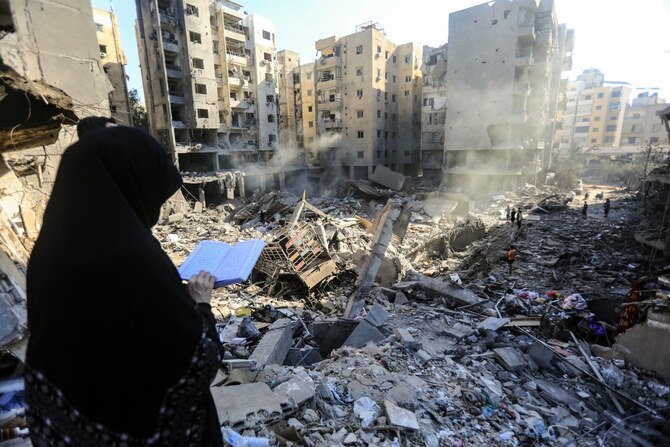Tehran: Iran and Iraq will both stage funerals for Revolutionary Guard General Abbas Nilforoushan, killed in an Israeli air strike alongside Hezbollah chief Hassan Nasrallah, the Guards’ news agency said Sunday.
Nilforoushan, a top commander in the Islamic Revolutionary Guard Corps Quds Force foreign operations arm, was killed on September 27 alongside Nasrallah in the strike on south Beirut.
The IRGC said Friday his body had been recovered from the site of the strike on the Lebanese capital’s southern suburbs, a Hezbollah stronghold.
Funeral ceremonies will be held in “Najaf and Karbala” in Iraq on Monday before the body is transferred to Iran’s holy city of Mashhad, the Sepah news agency said.
Another ceremony will take place at Tehran’s Imam Hossein Square on Tuesday before burial Thursday in the central city of Isfahan, his hometown, Sepah said.
On October 1, Iran fired some 200 missiles at Israel in retaliation for the killing of Nasrallah, Nilforoushan and Hamas political chief Ismail Haniyeh in late July.
Israel said it carried out the Beirut strike but did not comment on Haniyeh’s death in Tehran, where he had attended the inauguration of the Islamic republic’s new president.
Israel has vowed to retaliate for the Iranian missile attack, with Defense Minister Yoav Gallant saying the response would be “deadly, precise, and surprising.”
Iran, Iraq funerals for general killed with Hezbollah chief
https://arab.news/5e6tg
Iran, Iraq funerals for general killed with Hezbollah chief

- Nilforoushan is a top commander in the Islamic Revolutionary Guard Corps Quds Force foreign operations arm was killed alongside Nasrallah
EU warns Israel suspending Gaza NGOs would block ‘life-saving aid’

BRUSSELS: The EU warned Wednesday that Israel's threat to suspend several aid groups in Gaza from January would block "life-saving" assistance from reaching the population.
"The EU has been clear: the NGO registration law cannot be implemented in its current form," EU humanitarian chief Hadja Lahbib posted on X, after Israel said several groups would be barred for failing to provide details of their Palestinian employees.
"IHL (international humanitarian law) leaves no room for doubt: aid must reach those in need," Lahbib wrote.
NGOs had until December 31 to register under the new framework, which Israel says aims to prevent "hostile actors or supporters of terrorism" operating in the Palestinian territories, rather than impede aid.
Israeli authorities announced Tuesday that organisations which "refused to submit a list of their Palestinian employees in order to rule out any links to terrorism" had received notice that their licences would be revoked as of January 1, with an obligation to cease all activities by March 1.
Israel has not disclosed the number of groups facing a ban, but it has specifically called out Doctors Without Borders (MSF) for failing to meet the rules. It accused the medical charity of employing two individuals with links to Palestinian armed groups.
The Israeli government told AFP earlier this month that 14 NGO requests had been rejected as of November 25.
Several NGOs said the new rules will have a major impact on aid distribution in Gaza, with humanitarian organisations saying the amount of aid entering Gaza remains inadequate.
While an accord for a ceasefire that started on October 10 stipulated the entry of 600 trucks per day, only 100 to 300 are carrying humanitarian aid, according to NGOs and the United Nations.
COGAT, the Israeli defence ministry body responsible for Palestinian civilian affairs, said last week that on average 4,200 aid trucks enter Gaza weekly, which corresponds to around 600 daily.











